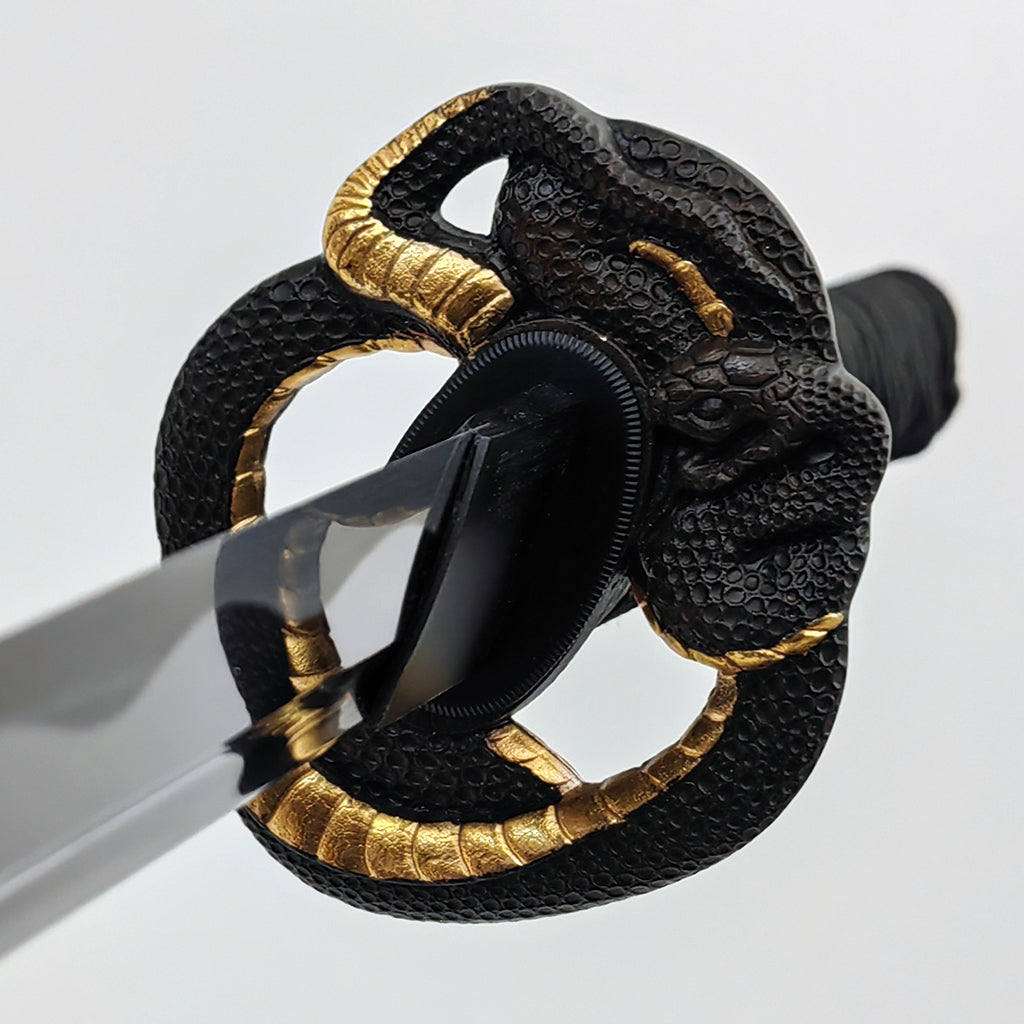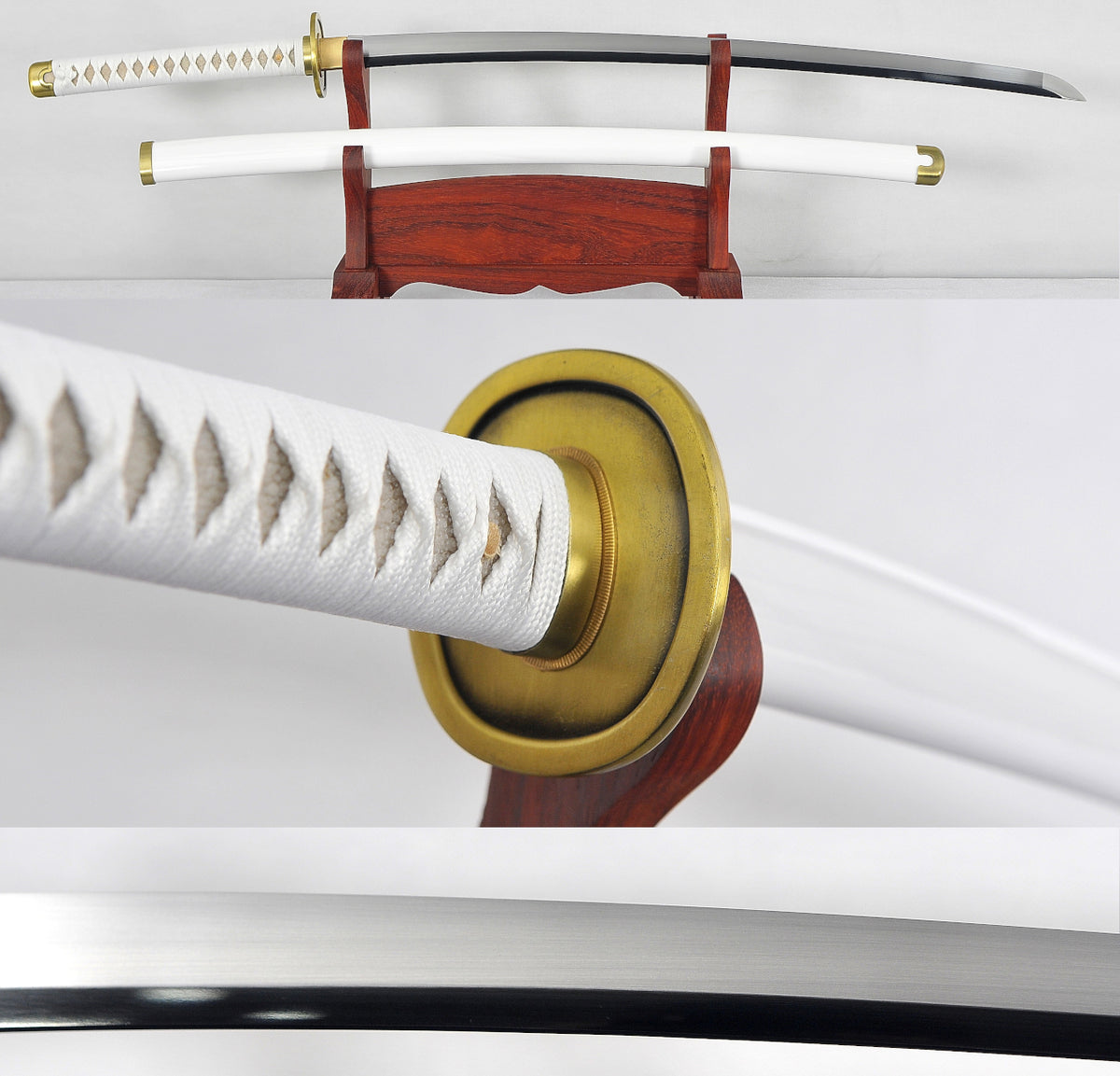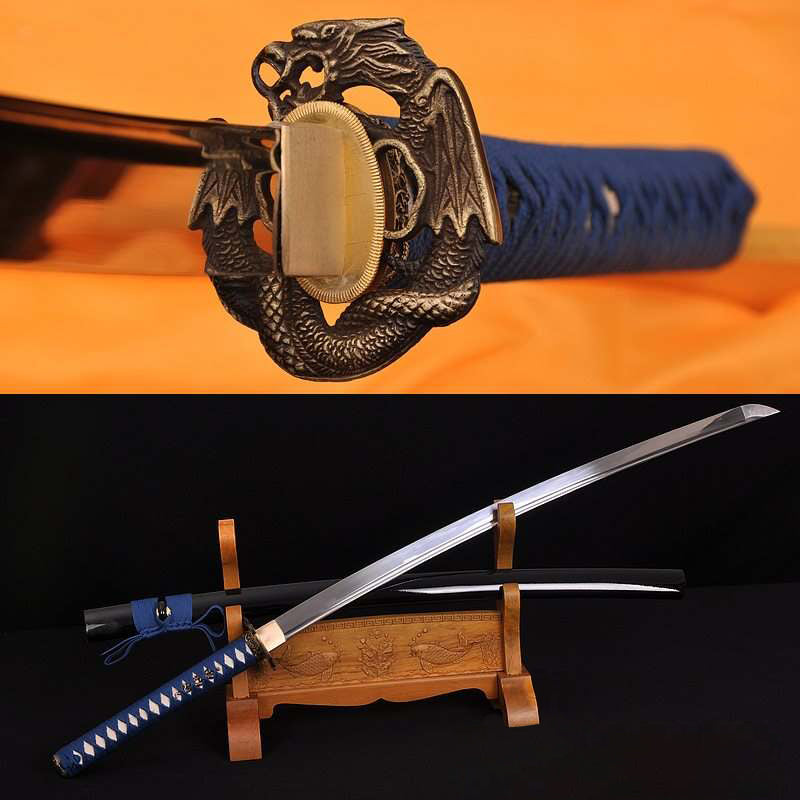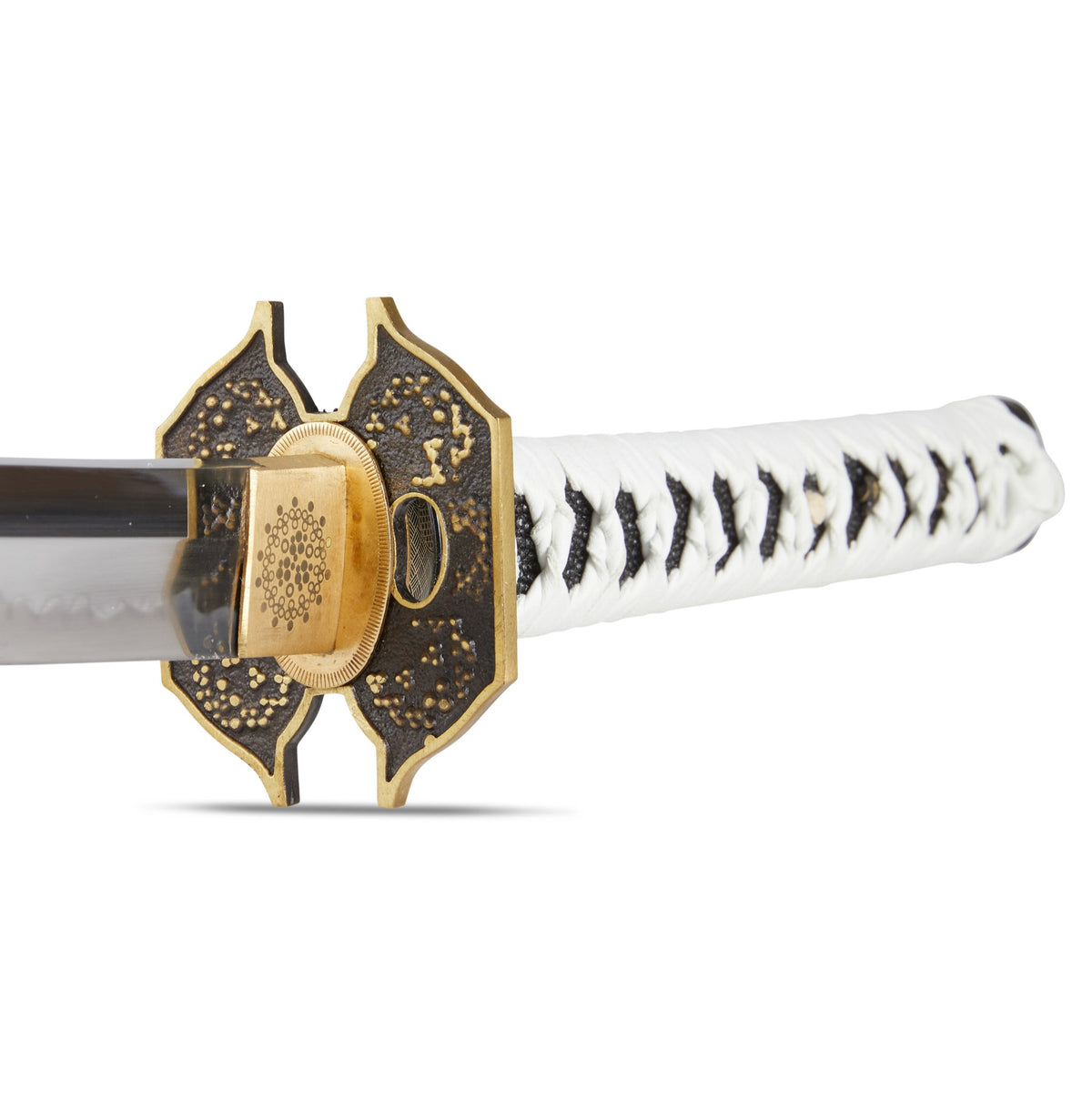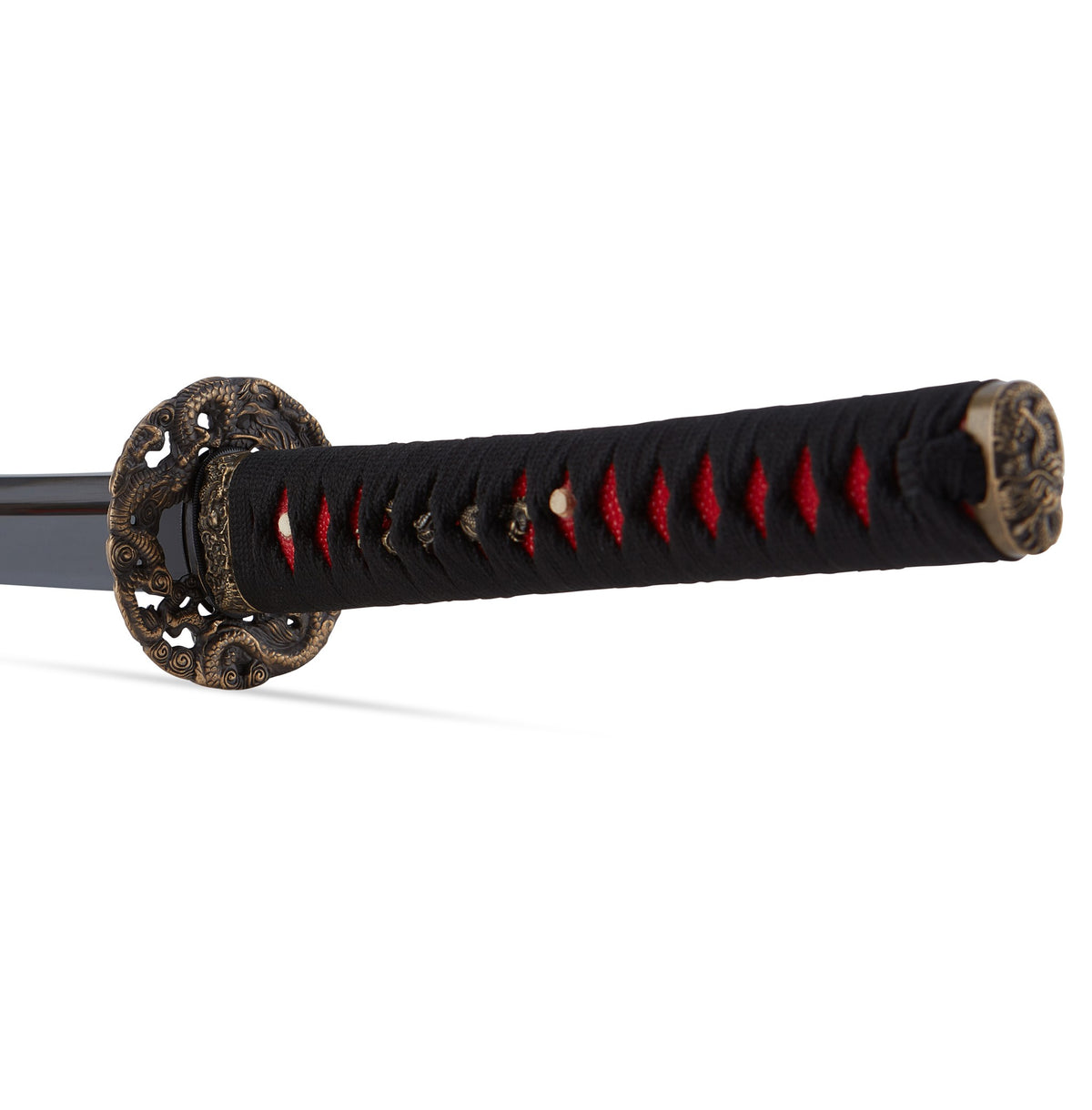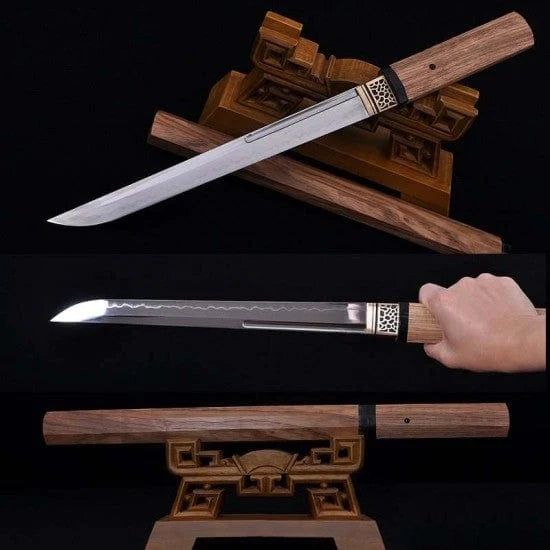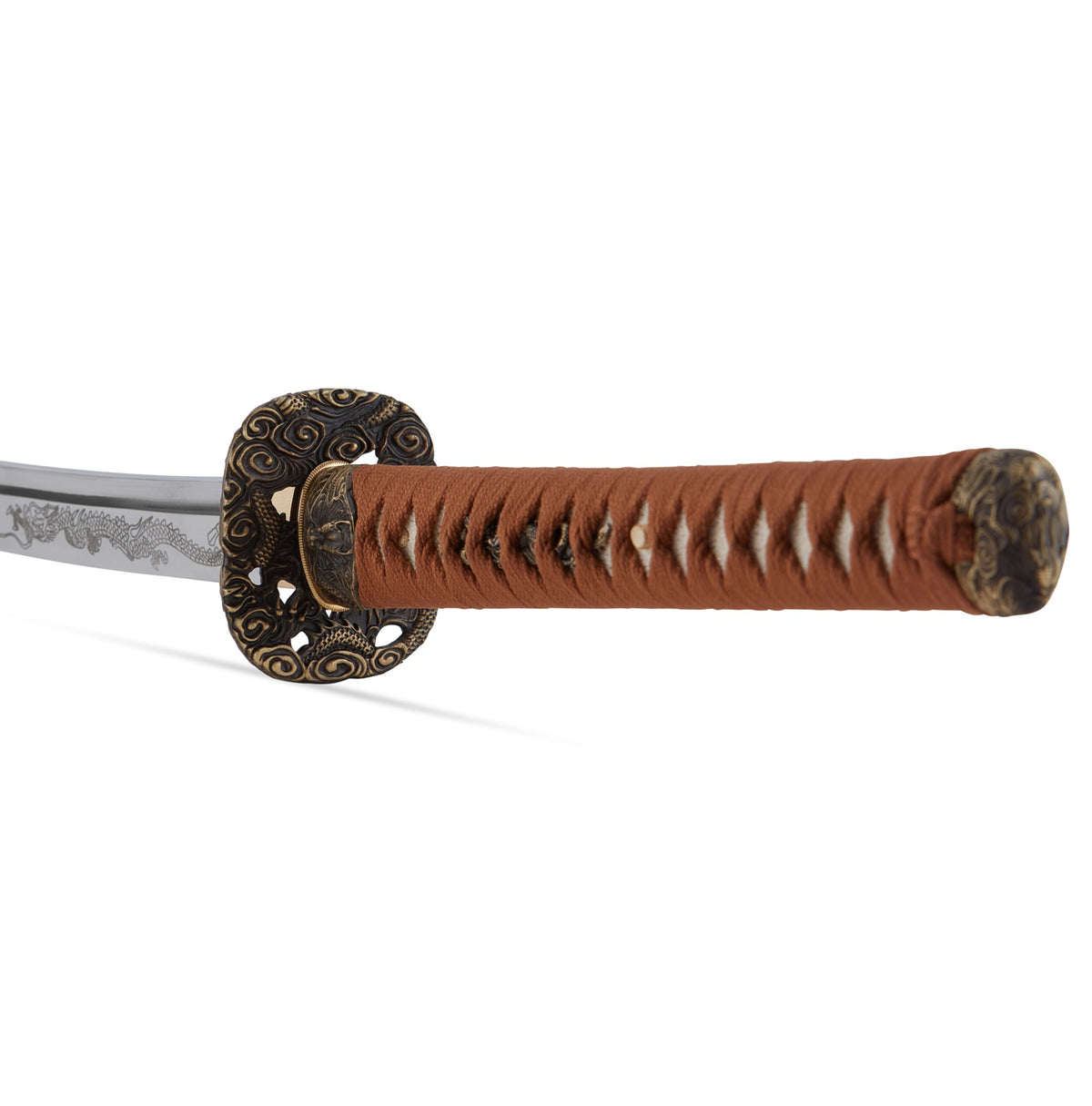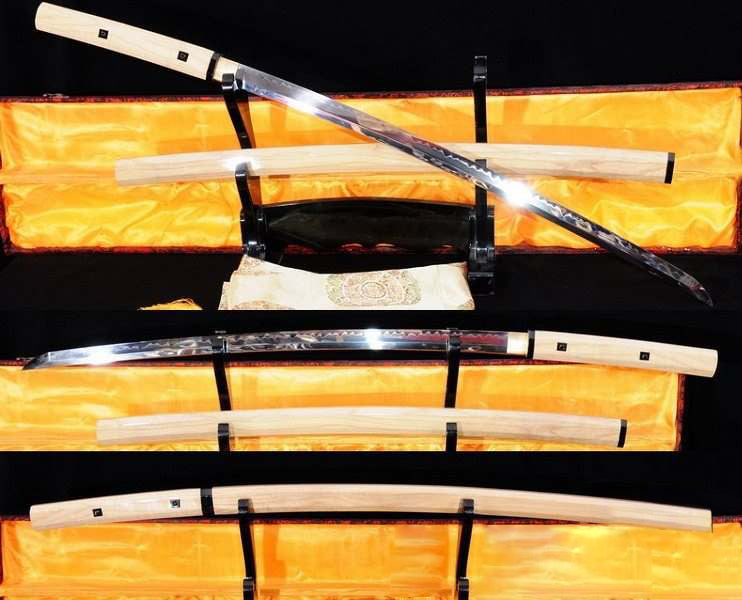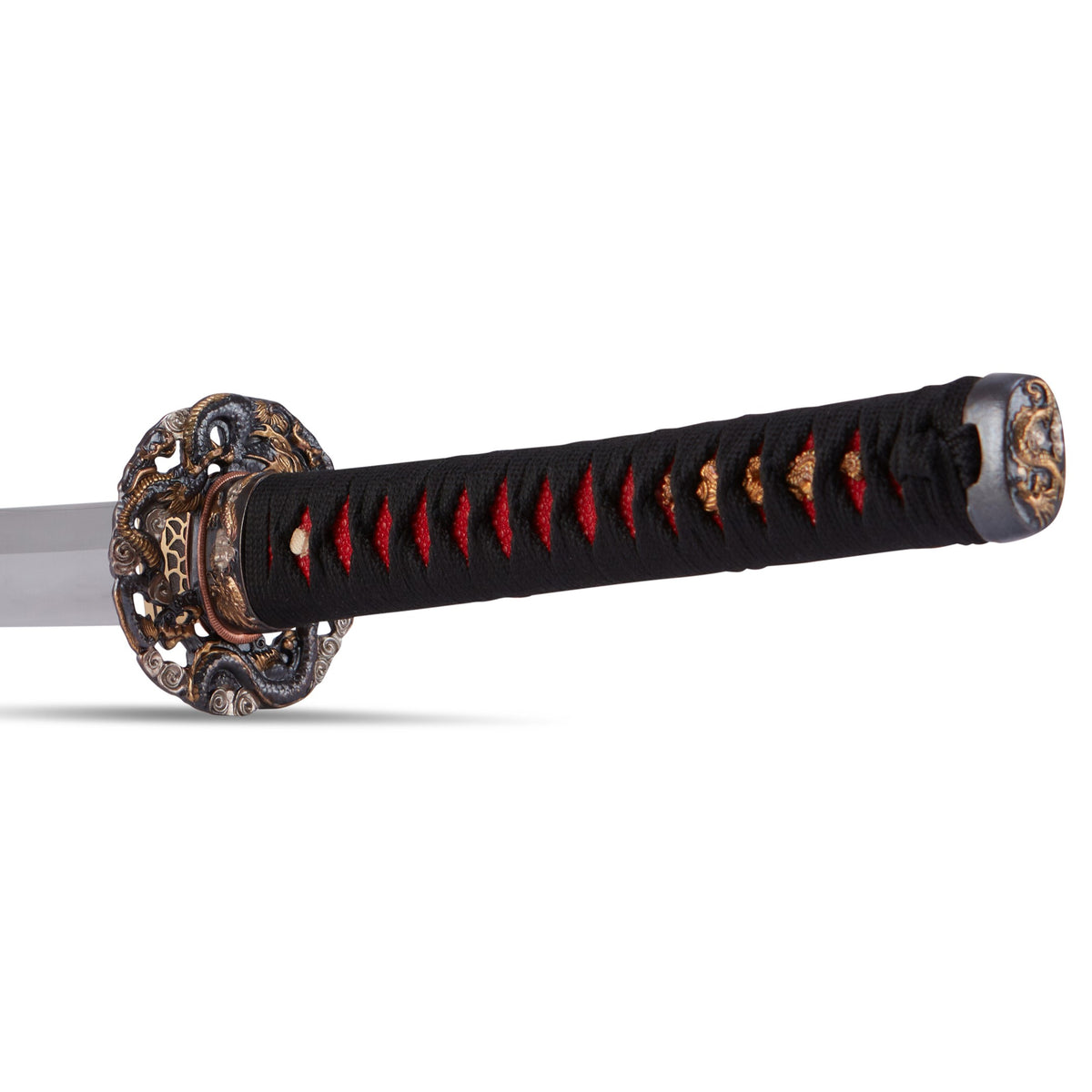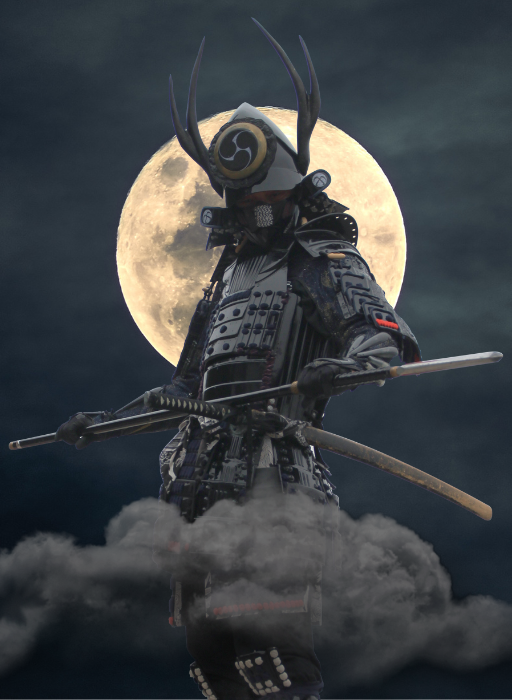What’s the Best Type of Sword?

Due to a rise in historical dramas and period pieces in popular culture, more people than ever are familiar with the different types of swords in each country and throughout history. But what is the best type of sword? With so many out there, do we actually have a real answer?
As such huge fans of Japanese history, our answer would obviously be a katana. But there is some difference of opinion here. As we explore the most powerful sword shapes, sizes, and forging methods, a new champion could emerge. Check out our top five list of the best swords today.
1. Katana
One of the most famous types of swords, the katana is featured in hundreds of movies and shows. This weapon also has historical significance, as it was used by the Japanese as a primary weapon up until World War II. Part weapon, part work of art, we believe that the katana is the best type of sword because of its versatility and durability; it’s hard enough to slash through center mass but flexible enough to withstand the blows of another weapon.
2. Miao Dao

Another sword from the far east, the miao dao is a Chinese weapon that offers similar versatility, strength, and shape as a katana. It can be used with one or two hands for thrusting, slashing, and chopping. Most of the time, the miao dao was used for close combat and executions of prisoners of war.
3. Khopesh
A sword that originated in ancient Egypt, it has a curved blade that’s only sharpened on one edge. The hooked shape of the blade allows the wielder to disarm their opponents more easily. One of the most lightweight swords of the ancient world, a khopesh was still thick enough to be used as a club to batter opponents without killing them. This versatility could be why it’s considered one of the most powerful swords.
4. Gladius

A well-known historical sword, the Roman gladius may have been derived from designs created by the Celts. A sword with a short and thick blade, it was an effective thrusting weapon that was incredibly deadly in attacks that used the traditional, disciplined formations of the Roman army. Many people consider the gladius one of the best types of swords, but its prowess is due more to how it was used strategically than its shape, weight, or size.
5. Falcata
The final sword on our list may not be as well known to you, but it was famous in the ancient world. Developed by the Spanish, the falcata is another long, curved sword. It measured about two feet in length and featured a single-edged blade that became a double-edged blade at the tip. A versatile sword for slashing and chopping, it could be the reason Hannibal’s warriors were victorious against the Romans in the Battle of Cannae.
These are the best types of swords from the ancient world. Do you agree? Let us know in the comments!
Best Sellers
- Regular Price
- from $199.99
- Sale Price
- from $199.99
- Regular Price
-
- Unit Price
- per
- Regular Price
- from $299.00
- Sale Price
- from $299.00
- Regular Price
-
- Unit Price
- per
- Regular Price
- from $199.00
- Sale Price
- from $199.00
- Regular Price
-
$0.00
- Unit Price
- per
- Regular Price
- from $619.00
- Sale Price
- from $619.00
- Regular Price
-
- Unit Price
- per
- Regular Price
- from $319.00
- Sale Price
- from $319.00
- Regular Price
-
- Unit Price
- per
- Regular Price
- from $249.00
- Sale Price
- from $249.00
- Regular Price
-
- Unit Price
- per
- Regular Price
- from $339.00
- Sale Price
- from $339.00
- Regular Price
-
- Unit Price
- per
- Regular Price
- from $219.00
- Sale Price
- from $219.00
- Regular Price
-
- Unit Price
- per
- Regular Price
- from $364.00
- Sale Price
- from $364.00
- Regular Price
-
- Unit Price
- per
- Regular Price
- from $519.00
- Sale Price
- from $519.00
- Regular Price
-
- Unit Price
- per
